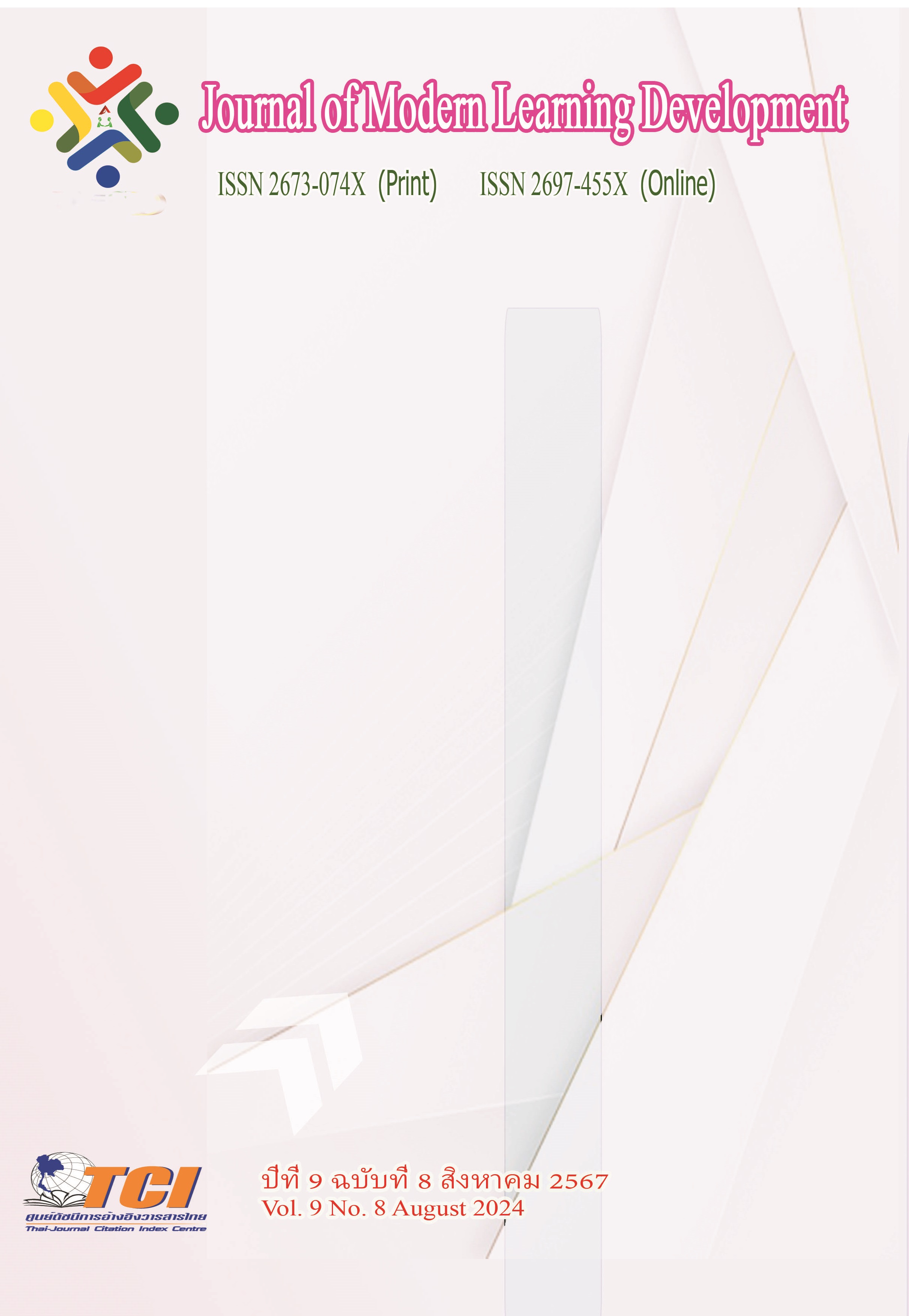Conditions Affecting Successes in Cross-Cultural Communication: a Case Study of International Affairs between Huachiew Chalermprakiet University in Thailand and Higher Educational Institutes in People's Republic of China
Main Article Content
Abstract
This qualitative research aims to analyze conditions affecting successes in cross-cultural communication focusing on international affairs between Huachiew Chalermprakiet University (HCU) in Thailand and higher educational institutes in People's Republic of China (PRC). Selected informants are five officers of HCU and nineteen officers from eleven higher educational institutes in PRC. Use research tools by asking interview guide questions and observation for analysis. The research finds similar cultures positively supporting cross-cultural communication, including 1) less contextual communication, without additional interpretation. 2) Linear communication, prioritizing plans and processing. 3) Complex communication, processing multiple issues through complicated time point of view. 4) Close communication, informal contacting and less processing. And 5) Personal communication, creating relationships with respective distance. On the contrary, different cultures decreasing effectiveness of cross-cultural communication include 1) high contextual communication, depending on ability of interpretation of communicators. And 2) Segmentation communication, separating places and issues communicated.
Article Details
References
ฉันทัส ทองช่วย. (2543-2544). งานวิเทศสัมพันธ์เป็นงานสำคัญของคณะมนุษศาสตร์และสังคมศาสตร์. วารสารปาริชาติ. 13 (2), 3-5.
ชฎาพร โชติรดาภาณ. (2559). วิเทศสัมพันธ์: กาลเวลาที่ต้อง “ลอกคราบ”. วารสารพิกุล. 14 (1), 165-183.
ณัฏฐ์ชุดา ชูตระกูล. (2564). การปรับตัวทางด้านการสื่อสารข้ามวัฒนธรรมของชาวไทยที่อาศัยอยู่ในเมืองออกซ์ฟอร์ด ประเทศอังกฤษ. วารสารนิเทศศาสตรปริทัศน์. 25 (2), 62-76.
เมตตา วิวัฒนานุกูล (กฤตวิทย์). (2559). การสื่อสารระหว่างวัฒนธรรม (พิมพ์ครั้งที่ 2). กรุงเทพมหานคร: สำนักพิมพ์จุฬาลงกรณ์มหาวิทยาลัย.
สุนทรียา ไชยปัญหา และ อุรารักษ์ ศรีประเสริฐ. (2559). แนวคิด ทฤษฎีวัฒนธรรมการจัการ : การปรับตัวภายใต้ความแตกต่างทางวัฒนธรรม. วารสารวิชาการ คณะวิทยาการจัดการ มหาวิทยาลัยราชภัฏมหาสารคาม. 1 (2), 104-111.
สุรศักดิ์ บุญอาจ. (2552). การสื่อสารและการปรับตัวทางวัฒนธรรมของคนไทยที่เข้าร่วมโครงการเวิร์ค แอนด์ ฮอลิเดย์ วีซ่า ไทย-ออสเตรเลีย. วิทยานิพนธ์นิเทศศาสตรมหาบัณฑิต. กรุงเทพมหานคร: จุฬาลงกรณ์มหาวิทยาลัย.
Ou Liufen. (2561). ปัญหาและแนวทางแก้ไขปัญหาการใช่ภาษาไทยของนักศึกษาชาวจีน มหาวิทยาลัยหัวเฉียวเฉลิมพระเกียรติ. การประชุมวิชาการระดับชาติ มหาวิทยาลัยรังสิต ประจำปี 2561, วันที่ 4 พฤษภาคม 2561. มหาวิทยาลัยรังสิต. 413-422.
Hall, E. T. (1959). The Silent Language. New York: Doubleday & Company, INC.
Jia, Y.X. (1997). Intercultural Communication. Shanghai: Shanghai Foreign Language Education Press.
Wu, W.S. and Yan, H.X. (2009). Introduction to Intercultural Communication. Beijing: The Commercial Press.
Xiong, L.J. and Liu, X.H. (2010). Intercultural Communication. Shanghai: Shanghai JIaotong University Press.


